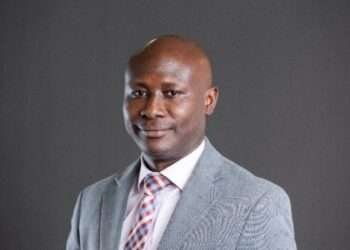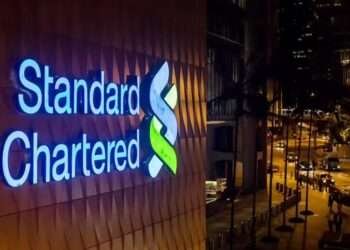In a thought-provoking inaugural address titled “Islamic Banking Options: Exploring An Inclusive Alternative or Complement,” Professor John Gatsi, the distinguished Dean of the School of Business at the University of Cape Coast, advocated passionately for Ghana’s adoption of Islamic Banking as a pivotal component of its financial framework.
The venerable professor’s address shed light on the transformative potential of Islamic Banking to reshape Ghana’s economic situation, while offering insights into its role as a catalyst for fiscal sustainability and inclusive prosperity.
Professor Gatsi’s discourse commenced with a fundamental assertion: Islamic Banking ought not to be perceived as a mere substitute for conventional banking systems, but rather as a complementary instrument that can coexist synergistically. Central to his argument was the profound impact Islamic Banking could have on public debt management— a critical concern for Ghana and many other nations grappling with fiscal challenges.
Drawing parallels with countries such as Saudi Arabia, the UAE, and Algeria, Professor Gatsi highlighted their significantly lower debt-to-GDP ratios, attributing this to the incorporation of Islamic Banking principles into their financial systems. He emphasised the potential for Islamic Banking to alleviate Ghana’s debt burden while fostering fiscal resilience and sustainability.
“Islamic Banking aids practicing countries with their public debt management, leading to reductions in their public debts. Countries such as Saudi Arabia, UAE, and Algeria that practice Islamic Banking have debt-to-GDP ratios notably lower than the global average,” Professor Gatsi stressed.

In the face of economic volatility, Professor Gatsi urged Ghana to reassess its debt management strategies, advocating for the integration of alternative financing mechanisms like Sukuk (Islamic Bonds). He cautioned against over-reliance on international capital markets, citing the risks associated with instruments such as Eurobonds.
International Recognition of Islamic Banking
Acknowledging the international recognition of Islamic Banking by prestigious institutions such as the IMF and World Bank, Professor Gatsi stressed that it is imperative for Ghana to embrace Islamic finance. He highlighted its potential to combat poverty and promote inclusive economic growth, echoing global efforts toward socioeconomic advancement.
“Islamic Banking is recognized by key international organizations, including the UN, IMF, and World Bank, as a potent tool for poverty reduction. It is incumbent upon us to follow suit and integrate Islamic finance into our financial ecosystem,” Professor Gatsi affirmed.
Moreover, Professor Gatsi’s advocacy for Islamic Banking aligns with broader global trends towards financial diversity and inclusion. Across the world, countries are increasingly recognizing the value of alternative financial systems in promoting economic resilience and reducing vulnerability to external shocks.
By embracing Islamic Banking, Ghana not only positions itself at the forefront of this global movement but also signals its commitment to fostering a more inclusive and sustainable financial sector. This strategic shift not only enhances Ghana’s economic resilience but also strengthens its position in the global financial architecture, attracting investment and fostering partnerships based on shared values of stability, equity, and prosperity.
Professor Gatsi’s clarion call resonates deeply as Ghana faces the complexities of its economic challenges. The integration of Islamic finance stands poised to not only diversify the nation’s financial architecture but also to foster inclusive prosperity and propel Ghana toward sustainable development.
As Ghana sets its sight on this journey, the principles of Islamic Banking offer a promising pathway to address economic challenges while advancing the nation’s overarching goals of prosperity, equity, and sustainability. By embracing Islamic Banking, Ghana can pave the way for a more resilient and inclusive financial future, unlocking new opportunities for growth and prosperity for all its citizens.
READ ALSO: The Cedi Storm: Ghanaians Fear for the Worst





















